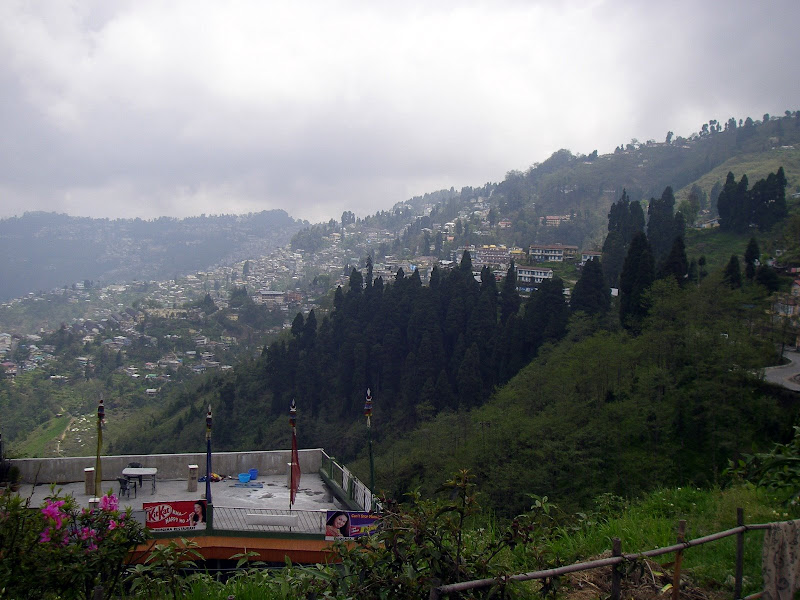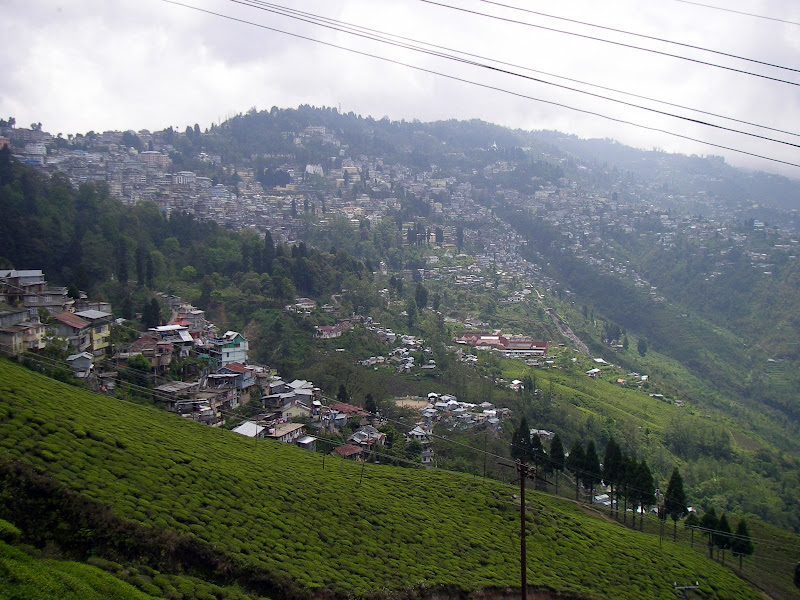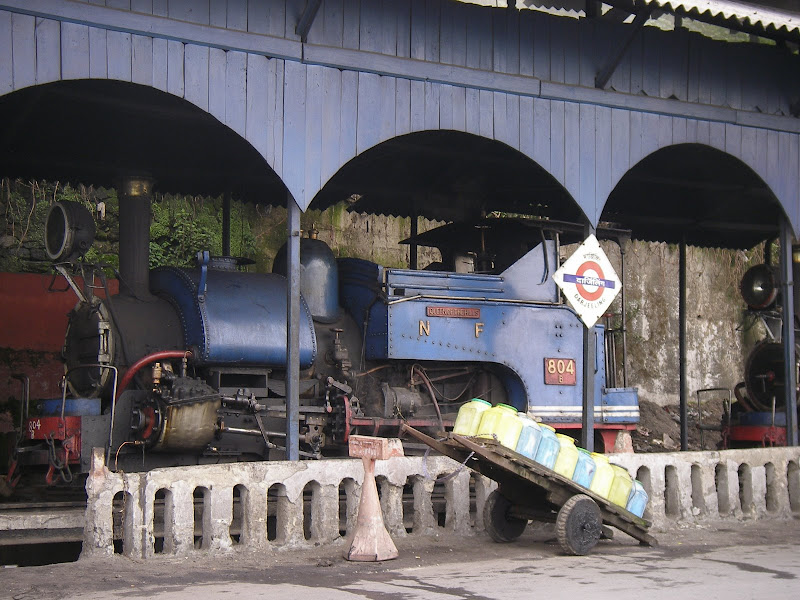Monday, 16 April
For those of you who don't have a Rough Guide for India handy, it says "Part Victorian holiday resort, part major tea-growing centre, Darjeeling (from Dorje Ling, "place of the thunderbolt") straddles a ridge 2,200m up in the Himalayan foothills and 600 km north of Kolkata (Calcutta)". I guess the original attraction of developing the town was that it has a much cooler climate than Calcutta and enabled the British sahibs and mem-sahibs to escape the heat in the summer. It also gave the tea planters a place to meet other chaps and sink a peg or 2 of whisky over a game of billiards or cards. The climate still draws holiday makers as do the spectacular views of Kanchenjunga and other ice-capped peaks. However it seems that for most foreigners it is mainly a staging post for the more glamorous tourist destination of Sikkim(with even better views, its own culture and trekking) a couple of hours drive north.
View of
The disadvantage of being built on quite a narrow ridge is that it gives little scope for horizontal development. Not that this has stopped expansion and the infrastructure is now creaking, not least water and roads. 60 years ago water came from a couple of mountain spring fed tanks (reservoirs) up the hill and these were adequate for the population of about 20,000; the population is now more like 200,000 and additional reservoirs are still (as they have been for 30 odd years) only at the planning stage. Water is therefore scarce and the limited piped supply is topped up by tankers bringing water from mountain springs to sell to the hotels. For domestic use, porters push carts up the hill with containers to fill – even with empty containers, it looks hard work on the way up and on the way down with a full load difficult to keep the cart from running away.
Cart with water containers (and a taster of the Toy Train, more pics to come in a later posting)
Off on a short trip on the Toy Train tomorrow.
Cheers
Roshan






No comments:
Post a Comment